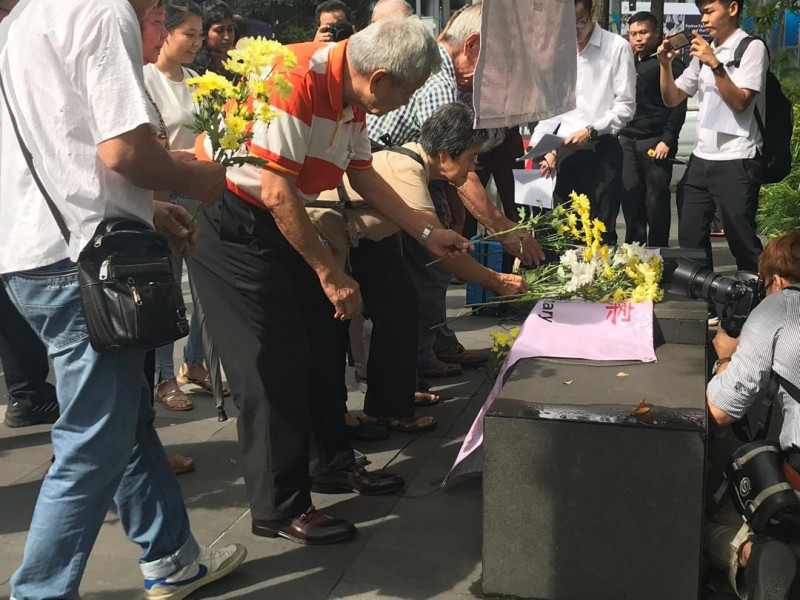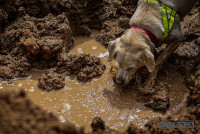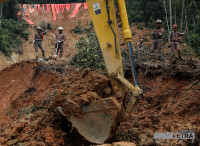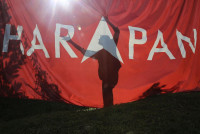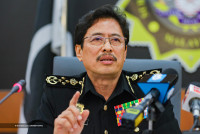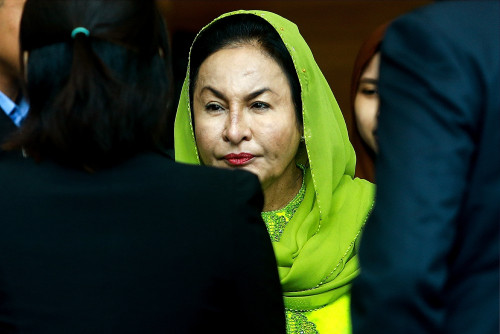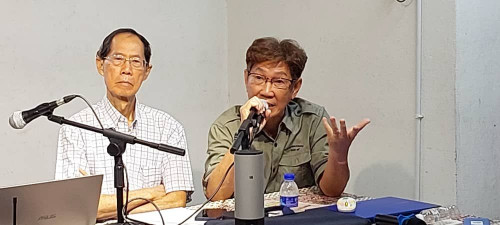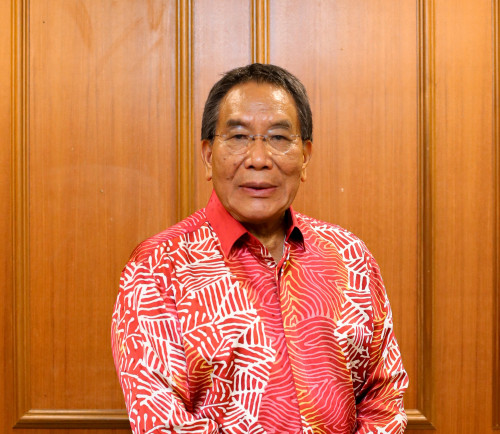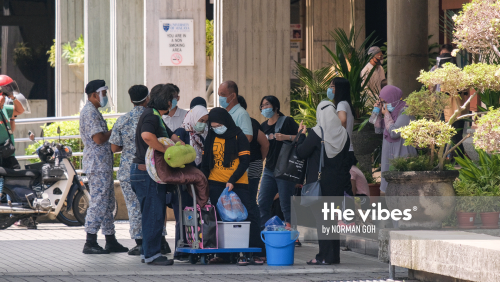ON December 12, 1948, just at the start of The Emergency, 24 Chinese civilians were shot by British soldiers at Batang Kali.
Yesterday, families of the Batang Kali massacre submitted a memorandum demanding an official apology from the British government over the incident that claimed the lives of their loved ones.
Despite the years of the families’ efforts, the British authorities have decided that they will not carry out an inquiry into the Batang Kali massacre of 1948 because it happened 75 years ago.
In 2012, the London court upheld a government decision not to conduct a public inquiry into the shootings. This was despite the court acknowledging the UK’s responsibility for the deaths of the 24 civilians.
Does justice have an expiry date?
I remember a British QC once saying this in our Malaysian court: “Let justice be done though the sky falls down!” The Romans said it first many centuries ago - “Fiat justitia ruat caelum” – because it sounded more profound in Latin!
Will the sky fall if a case of grave injustice – the massacre of 24 innocent Malayans in Batang Kali – is once and for all brought to closure?
Why have the purveyors of “British justice” suddenly become such fuddy daddies? Are they worried about paying huge amounts of reparation to the victims if they are found to be liable?
What is 75 years? Didn’t the Japanese pay compensation to the Korean “comfort women” for what they did during the Second World War? Consider the Africans asking for reparations for slavery that happened more than 300 years ago.
The families of the 24 murdered people are calling for justice. It is about atonement. It is also about reconciliation, helping the victims and their families to come to terms with the past and to face the future after an acknowledgement of wrongdoing by the perpetrators.
Government refused to publish Emergency records
The most complete record yet compiled on the Emergency (1948-60) was written by British academic Anthony Short. He joined the University of Malaya in 1960 and was commissioned by the Malayan government to write the history of the communist insurrection in Malaya.
He was given full assistance by the government, including full access to confidential and secret papers.
When his finished manuscript was handed over to the Malaysian government in October 1968, Short had to wait three years before being told that it was not to be published.
Poor Short had been too much the rigorous and honest academic and apparently, his work couldn’t represent “the official history of the Emergency”.
Nevertheless, “The Communist Insurrection in Malaya, 1948-60” was eventually published in 1975 by Frederick Muller Ltd while he was senior lecturer at Aberdeen University.
For many years, this book was banned in Malaysia. Maybe it is time we had an official explanation of why Anthony Short’s commissioned history of the Emergency was rejected by the government.
This is Short’s conclusion after examining the records on the Batang Kali incident:
“That 24 guerrillas should have been killed in combat was remarkable, but the reticence shown by the army in acclaiming what should have been a considerable victory made it even more so.
“For ten days there was no further statement. Two days later after the incident a police inquiry began but for ten days no statement was issued although it soon became obvious that the 24 had been killed in what were at least unusual circumstances…There were no photographs, no names, and no evidence that they were suspected guerrillas…
“What emerges from the villagers’ accounts is a far more complex story which begins with the earlier ambush and killing of a lieutenant and a special constable, the arrest of a guerrilla supplier, and his arrival on the Sungai Remok estate with a combined army and police patrol. They encountered two young Chinese carrying padi who were accused of supplying the guerrillas, denied it, and were shot on the spot. The following morning, a lorry carrying tappers and rice arrived at these remote labour lines. The detained guerrilla supporter picked out a woman guerrilla supplier and the women were divided into two groups, some returning to the village, but the families of the men staying on.
“Troops then proceeded to burn down the labour lines and in so doing several detonators which were stored there, illegally no doubt but used for fishing purposes, exploded. The troops, outnumbered and thinking they had been ambushed, panicked, and began shooting. The Chinese started running but at such close quarters, all of them were killed by rifle and automatic fire.”
It was only after the expose of the My Lai massacre during the Vietnam War in 1970, that one of the Scots Guardsman who was at Batang Kali swore statements under oath to the effect that the 24 men had been massacred and they were not attempting to escape.
Short believed that: “Most of the evidence today is probably in the files of Scotland Yard, whose investigations were conducted by a Detective Chief Superintendent… Batang Kali remains the gravest, not least because it is the most exceptional, suspicion on the conduct of the British Army in Malaya.”
With the change in leadership in Britain in June 1970, the new Conservative government announced that the matter had been dropped. No reasons were given. Were 22 years too long after the event to warrant an inquiry?
Batang Kali no isolated incident
Batang Kali was by no means the only atrocity committed by the government forces during the Emergency. Short also found: “In the series of actions in which large numbers of homes were burnt – Jalong, Kachau, Lintang, and Tronoh being particular examples of concern – the Kachau case, while it may not have been entirely representative, affords some insight into the despotic nature of certain operations.”
We hope the families of the 24 Malaysian civilians massacred in Batang Kali will get justice, however long it takes.
The killing of civilians in any war or “Emergency” as we are seeing in Gaza today, “when committed in armed conflict, whether international or internal in character, and directed against any civilian population,” constitutes a crime against humanity. – The Vibes, December 13, 2023
* Kua Kia Soong is a former Petaling Jaya MP and human rights organisation Suaram director.



